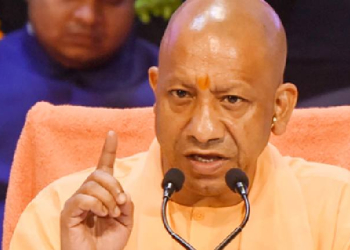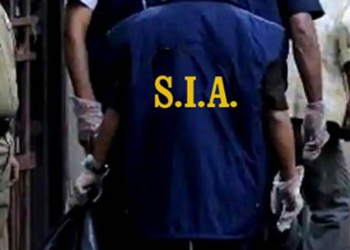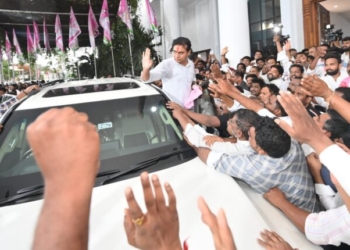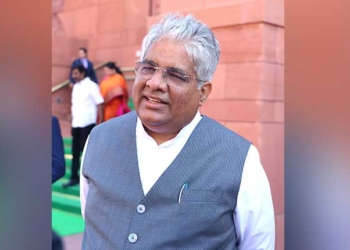Lucknow: A special NIA court here has awarded the death penalty to seven suspected Islamic State (IS) operatives and a life term to one in the Kanpur terror conspiracy case.
The accused, identified as Mohd Faisal, Gaus Mohd Khan, Mohd Azhar, Atiq Muzaffar, Mohd Danish, Mohd Sayyed Meer Hussain, Asif Iqbal and Mohd Atif alias Asif Irani were arrested in 2017 in the case pertaining to planning of terror acts.
Pronouncing the sentence on Tuesday, judge V.S. Tripathi observed that the case fell in the rarest of rare categories and as such, the convicts were entitled to the severest punishment.
According to special public prosecutors M.K. Singh and K.K. Sharma, the FIR in the case was registered with the ATS police station in Lucknow on March 8, 2017.
The ATS had received information that members of the banned terror outfit were planning to carry out blasts at different places in the country.
Kanpur ATS, on the basis of suspicion, first arrested Mohd Faisal and later other accused were nabbed.
The state counsel said that the accused had conducted a test blast at Ganga Ghat in Unnao. During the probe, it also came to the fore that the accused had planted a bomb on the Kanpur-Unnao railway track. They had also planted bombs at different places during the Dussehra celebrations.
The charge sheet filed in the case on August 31, 2017, also included another accused Saifulla, who was killed in an encounter in the Dubagga area of the city on March 7, 2017.
Public prosecutor Sharma said that Mohammed Faisal, Gaus Mohd Khan, Mohd Azhar, Atiq Muzaffar, Mohd Danish, Mohd Sayyed Meer Hussain and Asif Iqbal were charged with IPC’s section 121 (waging war against the country), along with charges under the Unlawful Activities (Prevention) Act, Arms Act and the Explosive Substances Act.
Mohammed Atif Irani, who has been given life in jail, was charged under IPC’s section 121 (A) (conspiracy) besides the Unlawful Activities (Prevention) Act, Arms Act and the Explosive Substances Act.
The NIA investigations revealed that the accused had prepared and tested some IEDs and had unsuccessfully tried to plant them at various locations in the state.
The NIA had seized a notebook from their Haji Colony (Lucknow) hideout.
The handwritten notes were about potential targets and details about bomb-making. Investigations had also led to the discovery of several photographs of the accused making IEDs and even with weapons, ammunition and the IS flag, the NIA said.
The group of eight had reportedly collected illegal weapons and explosives from various places. One of the accused, Atif Muzaffar, had also disclosed that he had compiled information on techniques to fabricate IEDs after collecting materials from various internet sources.
The convicts were also involved in an explosion on the Bhopal-Ujjain passenger train on March 7, 2017, which left 10 people injured.
The NIA said that investigations in the case had shown that the accused had sworn ‘bayat’ (allegiance) to the Islamic State and its leader Abu Bakr al-Baghdadi. Atif Muzaffar was the group’s emir (leader) and was influenced by the propaganda of Zakir Naik.
He was found to be a frequent visitor of IS-related websites, from where he was downloading content and videos and sharing it with the others in his group.
The NIA had also seized a huge cache of arms, ammunition, electronic gadgets and other materials required to fabricate IEDs, and documents (diaries/literature/handwritten documents) including an ISIS flag, eight pistols, 4 knives, 630 rounds of live cartridges of 7.65mm (32 bore), 62 rounds fired cartridges of 7.65 mm, 5 gold coins and cash worth Rs 62,055, foreign currencies, cheques, passports, 5 mobile phones, 2 walkie-talkie sets, SIM cards and a train time table among other things.
(IANS)














